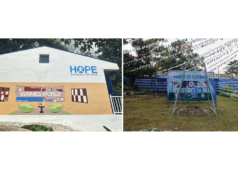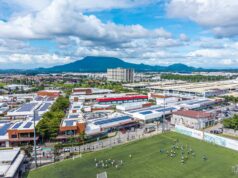They are among 10,094 children in five towns in three regions in the country selected for the project which is meant to achieve twin-benefi ts.
The other benefi ciaries are from Talibon, Bohol in Region VII (1,652); and Damulog (1,270), San Fernando (3,033), and Maramag (3,018) in Bukidnon in Region X.
The children, aged 3 to 5, are each given 200 milligrams of milk daily in their respective day care centers in addition to the regular hot or alternative meals under the government’s Supplementary Feeding Program.
The project is implemented by the Department of Social Welfare and Development (DSWD) and the Philippine Carabao Center (PCC) in partnership with the local government units, non-government organizations, and non-government agencies.
It is covered by a memorandum of agreement signed by Secretary Judy Taguiwalo for DSWD and acting Executive Director Arnel del Barrio for PCC. It has a total funding of P13,324,080 provided by DSWD.
“The milk comes from the yield of the carabaos of smallhold dairy farmers and is processed, packaged, and delivered in ready-to-drink packs by the PCC-assisted cooperatives to the day care centers,” del Barrio said in a statement. “The farmers are paid accordingly based on the volume of milk they delivered to the PCC,” he added.
Expected benefit for the children beneficiaries is the improvement of their nutritional status. For the farmers, aside from the daily income from the milk they supply, they will be assisted by expert products developers of PCC and DSWD in developing sustainable milk-based livelihood enterprises like milk-based bread, cheeses, and other foods.
Ma. Theresa Sawit, PCC senior research specialist, said during the soft launching of the project in Aliaga town recently, that the classrooms of the beneficiaries are provided with infographics to remind pupils about the importance of fresh milk drinking.
She added that their respective teachers will also conduct lessons on milk drinking and how it will help provide the nutritional needs of their body.
According to a study conducted by the National Food Research Institute (FNRI), about 7.9% of the children in rural areas were found to have low weight, slow growth and deficient in vitamins and minerals needed by the body.
Sawit also said a corollary research work would be done to determine the effects of daily milk drinking on the anthropometric characteristics (weight and height) of the children.
She added that the effects are positive, the protocol and the research results would serve as the standard for future nutritional programs by the PCC. DSWD and other concerned agencies or organizations.




